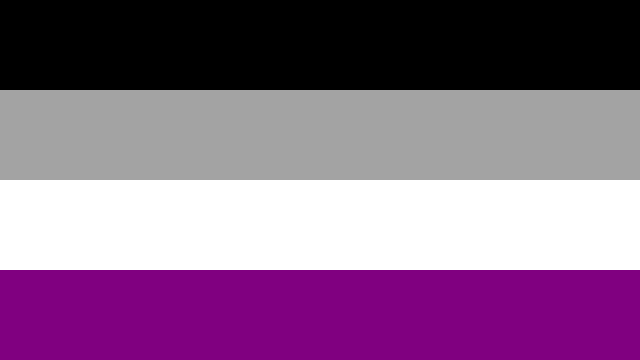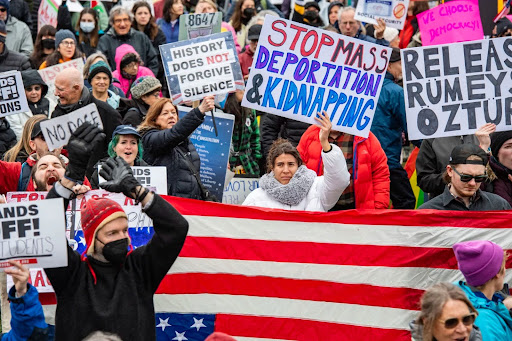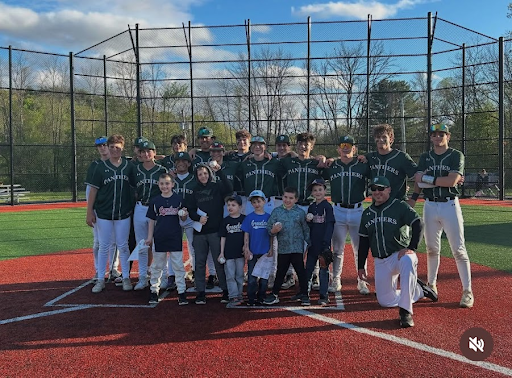Asexuality
“It felt like I was broken. I didn’t work like other people did. I’ve constantly been in relationships from the 6th grade onward because I felt like I should be, and I tried to feel something. It would have saved me and several others trouble if I had known what to call the way I was feeling,” says Natalie Pelletier.
Asexuality is in simplest terms is not having any sexual desire. To begin to comprehend it’s important to recognize that romantic and sexual attractions are two separate things. Some people are asexual and are content with romantic relationships, while other people are both asexual and aromantic, meaning they are content with only platonic and familial relationships.
There’s a lack of visibility when it comes to sexuality, due to this people grow up confused about where they fit or if they’re okay. Even in the media when an asexual person is present, their sexuality is seen as something that needs to be fixed.
That idea of “fixing” an asexual person leads to even worse problems. A major problem the asexual community (and the overall queer community) faces is “corrective rape.” This is when a person feels like they can correct someone’s sexuality by assaulting them. “For people who perform corrective rape, they believe that they’re just waking us up and that we’ll thank them for it later,” wrote Julie Decker, an asexual author and blogger, in a post after being assaulted by a ‘friend’.
There is no need to ‘correct’ something that never was wrong.
Many asexuals feel like they need to be in a relationship and feel like they have to give their partners sex. Even when they’ll try to say no or that they don’t want to, their partners will tell them that there’s something wrong with them or that they’re not being fair. “I felt too scared to say ‘no’ because I just assumed that I was supposed to be sexually active, and that active people didn’t say ‘no’ to any of these situations,” says anonymous. The amount of abuse the asexual community faces is very much connected on lack of education and negative societal interpretation.
Asexuality has been the target of a lot of hate and harassment. It’s important to realize that people can be different but there is nothing wrong with how someone identifies.
When the interviews were coming to a close I asked what advice the interviewees had for anyone struggling with their identity:
“Just know that you are not broken. There’s absolutely nothing wrong with what you feel or don’t feel. You don’t owe sex to anyone. It’s okay not to want a relationship, and it’s okay to want a relationship that’s just not intimate. Also, it gets really confusing trying to label everything or judge exactly what makes you feel what. Even with all these labels and categories, sometimes you still won’t fit into one. When people call your identity fake or just don’t understand, don’t let them convince you that you’re wrong. If you enter a relationship, make sure everything you do with that person is consenting,” said Pelletier.
“To someone struggling with any identity, sexual or otherwise, I would suggest doing research to help see where you find yourself gravitating towards. It’s also always nice to know that it’s okay to not figure out your identity right away, because it takes a lot of time to break away from the ‘Everyone is automatically straight and cisgender until proven otherwise’ mindset that we have today!” said anonymous.










Sam Romano • Dec 5, 2013 at 6:09 pm
This article was really interesting. To be honest, I did not know that asexual people even existed, I thought it was just like plants and stuff. But now I have an insight on this issue and I am aware that they are regular people just like us!
Thora Fink • Dec 4, 2013 at 11:04 pm
I really like this article because I don’t often see pieces written on the lesser-known parts of the LGBTQ spectrum and it’s good to spread awareness of the fact that asexuality exists. I get so sick of hearing people say things like “It’s just a hormonal thing” or “You’ll find someone eventually”. It makes someone who is questioning their sexuality feel broken and defunct, when in reality that’s simply the way they are- different, and that doesn’t make them a broken person. In the future, I hope that things like this won’t be such a big deal, and everyone can just accept that others are different, and we can all get on with our lives without people feeling like outcasts.
Abby Lacey • Dec 4, 2013 at 4:53 pm
I really liked this article. I’ve only recently learned of the asexual community, so when I read your article I really gained further insight on what it is like for people of that community to express themselves in society. Like you said, I think people should absolutely have the freedom to veer away from what’s socially acceptable and should never feel forced to give in to something because they feel they have to. Being surrounded by people who cannot understand or accept certain identities is extremely difficult and can really destroy those who find themselves straying from the “norms”. I hope that as more people grow aware of just how wide the spectrum of sexuality is, people in question will feel more comfortable expressing and embracing their identities.